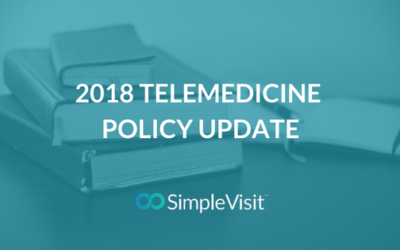Teletherapy Proposal for MD Social Workers
Maryland Deliberates Over Adding Social Work Clinicians to the List of Telehealth-Eligible Providers
The field of teletherapy is rapidly expanding and is positioned to be the area of virtual care with the most widespread and consistent patient engagement, physician adoption, and payer reimbursement – the “big 3” when it comes to obstacles of virtual care. As this subspeciality gains momentum, entities from across the healthcare landscape, from commercial companies to the federal government, are scrambling to jump on the bandwagon.
The most recent of those is the Department of Health for the state of Maryland. Just this week, the public comment period closed on their “Notice of Proposed Action” for a regulation that would include licensed certified social workers-clinical (LCSW-C) and licensed masters social workers (LMSW) under their supervision in the list of telehealth-eligible providers. Additionally, the proposal includes “Standards of Practice for Teletherapy”, which only requires that either the clinician or the patient is located in Maryland – a distinct departure from the current policies on licencing and treating across state lines that MD holds. This begs the question of whether the idea of an interstate compact for social workers – similar to the ones that have already been created or are pending for physicians, nurses, physical therapists, psychologists, emergency medicine personnel, and advanced practice nurses – is in the works. A document was already created in 2017 entitled “Standards for Technology in Social Work Practice” by the National Association of Social Workers (NASW) to help social workers navigate the increasing interdependence of their field and the technology that is advancing improving and every day.
This comes on the heels of actions in similar arenas in both Massachusetts and Minnesota that made further strides to increase access to and the efficacy of telemental health services by including social workers in their list of eligible providers. Change is coming, folks. Every day, this thing called telehealth is being seen less as a novelty and more as an opportunity to better serve the healthcare needs of the masses.
Read the original article from mhealthintelligence on the Notice here, and commentary from the Center for Telehealth and eLaw (CTeL) here.

Allie Clark
Allie is an Industry Analyst and Content Manager at SimpleVisit. Her educational background is diverse with Administrative Medical Assisting and Psychology as a focus with a dash of Business Communication and Theater. Unique life events have led to a passion for improving access to healthcare and a particular talent for research, which she is quickly turning into a career. Allie is able to use her combined experience to write and develop resources for SimpleVisit, and is fulfilled by the opportunity to contribute to innovation and progress in the healthcare industry as a whole.
2018 Telemedicine Policy Update
With most legislative sessions having already concluded or preparing to close, it is a good time to take a look at what changes are in-store for telemedicine. Thirty-one states and Congress have passed legislation or regulations pertaining to telehealth...
Telehealth Targets a Niche in Mental Health Care for Urban Youths
As a company dedicated to expanding access to care, we at SimpleVisit want to celebrate others who are also making that vision a reality. One program in New Jersey is connecting pediatricians and mental health experts with the intent to improve access to...
Telehealth Policy Barriers Factsheet
Are you thinking of offering a telemedicine option but wary of potential pitfalls for your practice? The Center for Connected Health Policy has recently published a fact sheet on Telehealth Policy Barriers that will help address any legal or logistical requirements...



